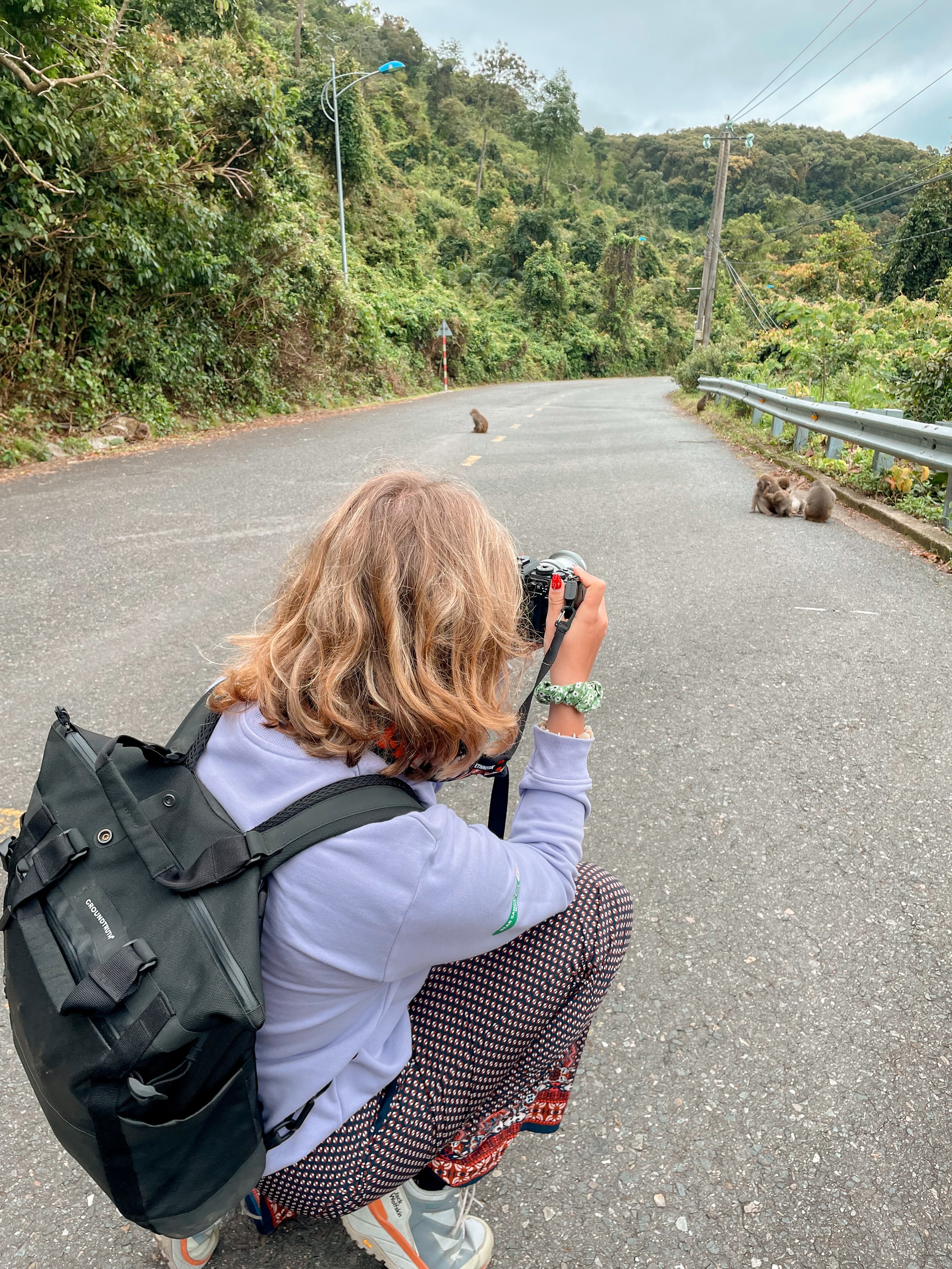Workshops & Talks
Want to bring conversation about wildlife to your institution?
project.wild founder, Connie, has experience in a range of different public speaking events and educational settings discussing topics such as:
Wildlife Tourism Ethics and Impact
Wildlife Encounters (including species specific talks)
(Social) Media and Conservation
Wildlife Volunteering and Impact Travel
Podcast Appearances
Have a podcast and looking to branch into some WILD topics?
project.wild founder, Connie, is always happy to talk about things ethical wildlife tourism, animal care, and the human-animal relationship! Email your ideas to connie.needham@icloud.com.
“Can We Feed Monkeys? And Why Not?”
This is Primate Tourism with Connie Needham
- Travel Devil Podcast -
In this episode, project.wild founder Connie talks with Clara from Travel Devil all about primate tourism in Southeast Asia.
Can we take selfies with gibbons? Should I feed monkeys? Why are macaques aggressive towards humans? And really… is it possible to see primates ethically?
Wild Encounters Done Right: Protecting Animals & Our Planet with Connie Needham
- I’m Intrigued! -
In this episode we sit down with Connie Needham, an ethical wildlife tourism educator, to uncover the dos and don’t’s of responsible travel. We explore how the mistreatment of animals can contribute to climate change, the hidden harm behind common tourist activities, and how improper interactions with wildlife impact ecosystems and our relationship with nature.
“How do I KNOW if a Wildlife Experience is Ethical?”
- The Sustainable Travel Podcast -
Connie is an Anthrozoologist, ethical wildlife enthusiast and the founder of project.wild, a handbook for ethical animal projects worldwide. She has so much to say on this topic, but in this episode, we covered: some of the issues in wildlife tourism right now and what you should avoid, why you SHOULD support an ethical sanctuary if you can, and some green and red flags to look out for!
Educational Presentations
Social Media: A Double-Edged Sword for Wildlife Conservation
University of Exeter | Anthrozoology Residential
Social media has a lot to answer for - with little regulation or protection for wildlife, it has become a hub for exploitative content, fuelling the illegal wildlife trade and reinforcing harmful narratives. But there are two sides to every coin - If used responsibly social media has immense potential to do good. It removes barriers to education, making conservation knowledge accessible to anyone, and gives NGOs and wildlife educators a free platform to share their knowledge.
But how do we ensure we are using it in the “right” way?


